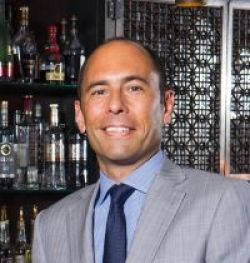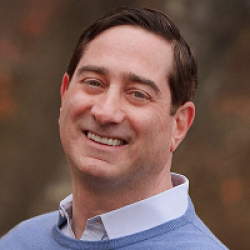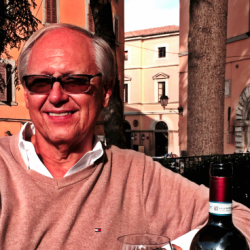How To Negotiate With Supermarket Chains
 Picture: Professor Maurice Schweitzer (Image Courtsey Meininger's Wine Business International)
Picture: Professor Maurice Schweitzer (Image Courtsey Meininger's Wine Business International)
When Martin Krajewski, owner of Chateau de Sours in Bordeaux, got his first contract with a British supermarket, he was thrilled. “Supermarkets are very alluring in that they talk about big volumes,” he says. “You think – if I could sell 50% of my wine to X or Y supermarket, that’s 50% of my headaches gone.”
Earlier this year, Krajewski shipped his last pallet of wine to a major UK supermarket, who he swears he’ll never work with again.
Now that’s he’s supplied wine to a number of supermarkets, he’s less starry eyed about the sector, saying that some are “not upfront about the promotions they’re going to do and the contribution you’re going to make,” he says. “They don’t tell you that you’re going to pay for samples to be entered into wine competitions.” He details other indignities: mandatory visits by multiple supermarket staff, resulting in big airfare and hotel bills. Never-ending compliance paperwork. New labels and capsules, charged to the chateau.
Then there are agreements that are entered into, only to be abandoned on a whim. Krajewsky talks of one deal he made with Tesco to sell 60,000 bottles of rosé – 10% of his entire production – at an agreed price. In 2013, because of internal issues, Tesco decided to cancel half the order. “It’s under your label, in your cartons, and with Tesco Finest on it, and I can’t do anything,” Krajewksi says he told them. Their response? “All hell broke loose.”
Krajewski is quick to add that he’s not talking about all supermarkets and that he couldn’t be more complimentary about the way some do business, particularly Marks & Spencer. Nevertheless, many small- to medium-sized producers will find themselves at a disadvantage when dealing with buyers, as there are many of the former and few of the latter. Given this, is it possible to hammer out deals that benefit both parties?
To find out more, Meininger’s contacted two of the world’s top experts on negotiations, to see what Krajewski – and other producers in similar positions – can do when the balance of power is unequal.
Understand power
Professor Adam Galinsky, the Vikram S. Pandit Professor at Columbia Business School, has spent his career researching leadership and decision making. He says that negotiating outcomes are less determined by personality or confidence, than by power. “Power comes in two forms,” he says. “The first really important form is the number of alternatives. If you don’t sell to this group, how many other people can you sell to? The more alternatives, the more power you have.” The other source of power, he says, is information. “Find out information about the other side. What are their needs, their alternatives? What are things that they want that you can provide for them that other people can’t?”
When in a particularly brutal negotiation, Professor Galinsky recommends going for an “integrative agreement”, by “adding in more issues to the equation that will maximize the benefit for both parties.” Professor Galinsky says the key is to discover what the other side most wants, and try to fulfil that. “Every time you walk into a negotiation, you should ask yourselves a series of questions about yourself and the other side,” he says. “What are my goals? What are their goals? That’s where you start getting opportunities.”
Anecdotal feedback suggests this is where the wine trade can improve. Anne Thysell, wine category manager at SPAR Austria – which has more than 1,600 outlets across Austria – says she’s inundated with emails from producers asking her to sample their wines. She says they’re simply wasting their time – and hers.
“Most of the producers who make contact don’t really bother to look at what we have in our assortment,” she says. “They haven’t visited us or even looked at our online shop.” In her entire career as a buyer, Thysell says she has never had an email saying something like: “I see you have these wines from Spain, and you might think about this product, and I have it.” Instead, the sales people always say: “We have this, do you want it?”
So Thysell relies on established contacts to find wines for her assortment, or she finds new producers at ProWein. “We are just two buyers,” she says. “I can’t take care of all those people who email me.” Yet she says she would be more open if the people who contacted her took the time to learn about her business, “but I have never received an email like that. Not in 15 years. They don’t understand my business, but I don’t have time to understand their business.”
Going into a negotiation
Professor Maurice Schweitzer, the relaxed and genial Professor of Operations, Information and Decisions at the Wharton School of Business, has co-written a business book called Friend and Foe with Professor Galinsky, on strategies for cooperating and competing. He agrees that pre-meeting preparation is key. “Gather information about your counterpart,” he says. “Practice and rehearse.”
Also be aware of the tactics that major buyers will have negotiation training. “People who are good negotiators know two things,” says Professor Galinsky. The first is that whoever makes the first offer has an advantage, and that the more aggressive the first offer, the better. These principles are universal and buyers know to make the harshest possible offer right at the beginning of the deal. But, says Professor Galinsky, this might not be their real offer. “A good negotiator gives an aggressive offer, but can give room to concede, so the more information you know about them, the better.” Say, for example, the buyer is offering you $6.00 a bottle for 100 cases of wine. “If you know what they’re selling that wine for and what profit margin they’re making, that can allow you to push back.” On the other hand, if you discover that they’re offering you $6.00 a bottle, but are selling it for $6.50, then “you know they don’t have much room to move because their margin is low.”
Sander Vriend, the European division manager for Ste. Michelle Wine Estates, says the ‘aggressive opening offer’ has often been his best friend. Some particularly hard-nosed European buyers refuse to look at his price list, perhaps hoping to bargain their way to a better deal. So Vriend goes in with an initial price that’s 20% higher than the actual price. “They come back with an offer that’s 10% lower and I act all tight and then you go back and forth and you offer a bit of a discount, like you can’t do any better and then you agree on that,” he says. Giving away even more of his secrets, Vriend adds that those same people will often come back saying they don’t buy ex-cellars, but only FOB, “so they try taking the inland freight, which is between $1,000 and $2,000.00”.
What Vriend never reveals, however, is that he knows this painful part of the negotiating is coming, so he’s already included it in his price. He also knows that “they want to squeeze you somewhere”, so he gives them the opportunity, while still going through the motions of haggling. “Then they say it’s difficult to do business with you and you’re miserable. They write you aggressive, two-line emails.” Vriend says such buyers are used to wine producers who know little about retail margins, so they possibly assume Vriend is also ignorant of the real numbers they’re dealing with. Eventually, he appears to give in. “I tend to end up with about 5% to 8% above my list price,” he concludes.
Anne Thysell says SPAR always discusses price very openly, adding that on occasions where she’s found a producer with a good wine at a good price, she sees no reason to get it lower. For own-label wines, the prices have to be very competitive, because SPAR has to price-match the discounters. But there is (some) wiggle room if the quality is good enough. “For me it’s very important that we have good quality,” she says.
Apart from good information, can anything else get you a good deal? What about investing in personal appearance by buying a power suit? “Coming across as confident is a good thing,” says Professor Galinsky, “but only up to the point that’s consistent with your level of power. You can act a little more than the power you have, but not a lot more.” What’s better, he suggests, is having enough information at your fingertips to be able to say, “You can buy other wines, but you can’t buy this wine. I know this and therefore this is a really good deal.”
Professor Schweitzer also suggests setting a tangible goal for yourself before stepping foot in the room. “Your goal should be challenging, but not impossible,” he says. “Let that goal guide your behaviour. Say to yourself, ‘This is the outcome I want, and these are the steps I will take to get it’.”
Final thoughts
So, what about Krajewski? If he could rewind time and go back to those first UK supermarket negotiations, could he have got a different outcome?
Perhaps not. Before he owned Chateau de Sours, he was CEO of the highly regarded Blomfield Group, a London recruitment firm, and had experience in negotiating deals worth millions of pounds. Whenever he entered into a deal, “everything was precise and documented in writing,” he says. “My contract with one of my clients in the city would have been completely watertight from the point of view of a contractual relationship.” Krajewski says that every agreement he entered into was bound by a full assignment brief, which “went into the drawer and never came out again, because we had a professional understanding.” By contrast, he says, some of the UK supermarkets he dealt with had no “signed contracts. It’s only on email and a handshake,” so there’s no paper trail to make the agreements binding.
Professor Galinsky says that when one party is in a position of low power, it’s impossible to negotiate. Despite being a world-famous expert on negotiation, his own skills have failed in the face of the movie industry, with whom he’s tried to negotiate on behalf of his documentary film maker brother. He laughs ruefully. “Studios have lots of alternatives, because there are lots of films they can buy,” he says. “But the people making the films don’t have many distributors. All I can do is say: ‘but it’s a great movie!’” Unfortunately, he says, the studios have no interest in negotiating.
Professor Schweitzer takes a more aggressive view. He thinks what wine producers need to do is form a collective and share their best practices – and use shame as a tool. “Here in the US, IBM negotiates with a lot of small companies, who post their negotiation experiences online. The negotiation tactics that a large organisation wants to employ become less effective, because people know about them and anticipate them.”
He also suggests going straight to the media if a big company behaves badly. “Even the biggest chains care about the way customers perceive them,” he says.
Indeed, that’s what Krajewski ultimately threatened Tesco with. “I said, I have written confirmation and if you don’t take the wine, I will go to the press,” he says, adding he was warned that if he did that, Tesco would never deal with him again. “I said – so be it,” he says. Tesco took the wines.
It should be noted that after waves of adverse publicity, the new Tesco management team announced that from June 2016, it will pay small suppliers in 14 days, among other improvements. When contacted for comment on Krajewski’s story, the company emphasised that they had changed the way they did business, while the wine-buying team had also changed. So naming and shaming does work. However, that’s the nuclear option, only to be used when the relationship has gone past the point of no return.
The best way to negotiate a better deal? Preparation, information and a good understanding of what both parties need to achieve. And offering the right product at the right price, of course.
Article was reprinted with permission by Meininger's Wine Business International. This article first appeared in Issue 5, 2015 of Meininger's Wine Business International
How To Negotiate With Supermarket Chains https://t.co/BNUsY53b81 pic.twitter.com/GUq3DhzrlB
— USATradeTasting (@USATradeTasting) August 5, 2016
Want More Content Like This.
USATT Conference 2017 will be live in New York City on May 16-17.
Learn from some of the most influential professionals in the beverage industry at the USA Trade Tasting educational conference. These presentations from industry leaders on today's progressive ideas on marketing, sales and distribution will challenge and inspire you to grow your beverage company.
The conference will have TED-Style talks where speakers will give you an insight into the strategies and standards that the industry's prominent thinkers are using to shape the marketplace around you.
Who are the Speakers?
Ranging from brand builders to marketing gurus, the educational conference is hosting remarkable experts who exhibit a truly heightened knowledge of the industry to give our visitors a clear understanding of the real life challenges that face them in the marketplace.
Who should attend?
Whether you are an importer, distributor, retailer, craft distillery, craft brewery or a boutique winery that’s just starting out, or work in sales with an importer/distributor or at an established beverage company, or simply wish to expand your skill set and gain a new perspective, USATT Conference is a must-attend event.
Join hundreds of fellow importers, distributors, winemakers, brewmasters, distillers, sales people and marketers at USA Trade Tasting Conference, designed to inspire and empower you with sales and marketing ideas—brought to you by Beverage Trade Network.
Please see detailed schedule below. You can register for Day 1 (16 May sessions) or Day 2 ( 17 May sessions) or even both days below.
Day 1: May 16 2017.
Price: $250. The sessions will run from 9am to 6pm and includes a coffee break. Your pass will give you entry into all sessions on 16th May. Your Conference ticket will also include free entry into the Grand Tasting area.
Current Alcoholic Beverage Market Trends In The United States and How These Affect You
Brandy Rand /
Vice President - International Wine & Spirits Research (IWSR, USA).
9:10 am - 9:30 am
Key Considerations on Route to Market Strategies in the U.S.
Chris Mehringer /
President, Park Street
9:30 am - 10:00 am
How Importers and Distributors Can Build a Strong Sales Force
Josh Wand /
Founder & Motivator in Chief of BevForce
10:00 am - 10:30 am
How to Draft a Solid Distribution Agreement for Franchise and Non-Franchise States
Donna H. Hartman, Esq /
Attorney, OlenderFeldman LLP
1:00 pm - 1:30 pm
The New Brand / Craft Phenomenon: An Even Better Future
John Beaudette /
President and CEO of MHW, Ltd
1:30 pm - 2:00 pm
10 Proven Promotional Programs That Will Get Your Brand Picked Up By National Chains and Large Retailers
Jonathan Newman /
Chairman and CEO, Newman Wine
2:00 pm - 2:30 pm
It's revolution time: Make your "liquor store" a lean, mean, selling machine: Marketing that will crush your competition and win customers for life.
Stephen Fahy /
Sales Director and Senior Buyer at the Wine Library
2.30 pm - 3:00 pm
Day 2: May 17 2017.
Price: $250. The sessions will run from 9am to 6pm and includes a coffee break. Your pass will give you entry into all sessions on 17th May. Your Conference ticket will also include free entry into the Grand Tasting area.
Office Hours with Importers and Distributors
Michael Yurch /
President at Bluest Sky Group. Ex-President of the renowned retail firm Sherry-Lehmann. With 34 years of experience,
9:00 am - 10:30 am
7 Ways That Brands Can Optimize Their Domestic and International Logistics
Thomas Barfoed /
Managing Director, JF Hillebrand USA
1:00 pm - 1:30 pm
Preparation to Pitching: How To Get and Grow With Your Distributor
Adam Lambert /
Seller Of Beer & Spirits
1:30 pm - 2:00 pm
How to win Retailers and Influence Them with Effective Merchandising and Programming
Richard Halstead /
Chief Operating Officer, Wine Intelligence
2:00 pm - 2:30 pm
Press Panel: Getting Press for your brand in USA. Do’s and Don’ts
W. R. Tish /
Managing Editor, Beverage Media
2:30 pm - 3:00 pm
Book Your Seat TODAY and Get Ready To Learn, Network and Grow. (Registration Ends May 13)














